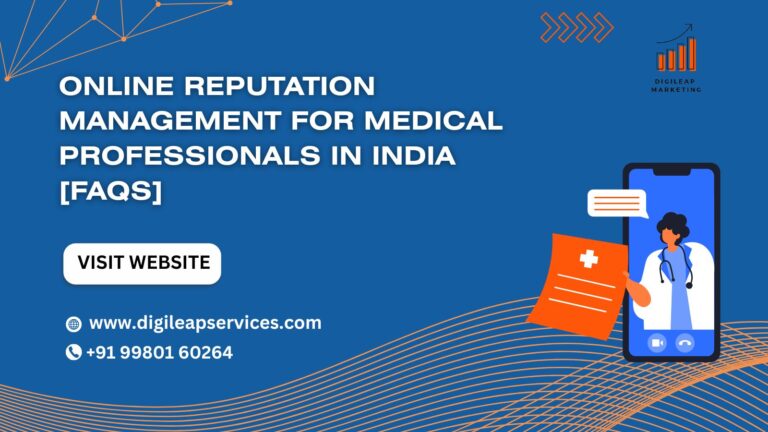The Role of Local SEO in Attracting Guests to Indian Hotels
Introduction: The Power of Local SEO for Hotels
With the fast-paced changes in the hospitality sector, visibility can either make or mar the success of a hotel. With travellers increasingly resorting to online searches when looking for places to stay, the role of local SEO (Search Engine Optimisation) has become a viable strategy for hotels in India. An optimised local search presence assures that guests searching for a stay at a time nearby will notice your property.
By 2025, just having a website is no longer enough. Hotels must now vie for supremacy in Google My Business (GMB) listings, local word search, online reviews, and map search to stand out in an already crowded marketplace. Let’s explore local SEO to achieve greater visibility for your hotel and ultimately secure direct bookings.
1. Google My Business Optimisation: The Digital Front Desk
A Google My Business (GMB) profile serves as a virtual storefront for hotels, appearing when prospective guests search for accommodations in the vicinity. Complete and optimised GMB listings consist of:
- Detailed Name, Address, and Phone Number (NAP)
- Photos of high quality, showing rooms, amenities, and surroundings
- Descriptions are kept up to date and contain location-based keywords.
- Updates on all offers, discounts, and events
If your GMB is optimised, your hotel will appear in the Google Local Pack—three map-based results that get the best exposure.
2. Local Keyword Strategy: Ranking for Traveller Intent
Travellers in the search for hotels would use terms like “best budget hotels in Jaipur” or “luxury beach resorts in Goa.” Targeting these geo-specific terms in website content, meta descriptions, and blogs ensures that the hotels rise in search rankings. Hotels should target:
- Long-tail keywords (e.g., “boutique hotels near Taj Mahal”)
- Voice search (e.g., “Which is the best family hotel near Lonavala?”)
- Localised landing pages for different cities and regions
Use hyper-local keywords to assist hotels in pulling guests who are at the decision-making level.
3. The Impact of Online Reviews & Reputation Management on Local SEO
In local SEO rankings, guest reviews become vital. Google favours hotels with high ratings, frequent reviews, and quick responses to feedback. By encouraging happy guests to leave reviews, you can:
- Improve your Google ranking.
- Build trusting credentials.
- Nudge potential travellers toward a direct booking.
Responding professionally to negative feedback also builds the hotel’s reputation. Hotels should utilise automated review request emails and WhatsApp messages after checkout to boost engagement.
Also Read ⇒ The Importance of SEO for Hospitality Businesses in 2025
4. Localised Content Marketing: Creating Travel Authority
For a hotel to be positioned as a worthwhile traveller choice, a compelling content marketing strategy is needed. Blogs, travel guides, and FAQs catering to the local audience not only boost search rankings but also engage potential guests.
- Typical content that hotels should create is as follows:
- Destination blogs (e.g. “Top 10 Places to Visit Near Udaipur”), Local event updates (festivals, concerts, business expos)
- Insider travel tips (e.g. “Best Street Food in Old Delhi”)
Despite improving website traffic and conversions, these content forms serve the dual purpose of enhancing local SEO for the hotels.
5. Mobile Optimisation & Voice Search Readiness
Mobile-first indexing is now more important than what was earlier perceived in the year 2025. A fast-loading, mobile-friendly website would ensure a maximum smooth browsing and booking experience. Also, with an increasing volume of voice searches like “pet-friendly hotels near Mumbai airport,” conversational SEO is a must-have strategy.
To make the site optimised for mobile and voice search, there are some important considerations to be made:
- Quick-loading pages
- Schema markup improves the visibility of your page in search results.
- Natural keywords should be used, which include voice-question keywords.
6. Leveraging Local Citations & Directory Listings
In addition to registering on Google My Business, hotels should also list themselves on local travel portals and OTAs (Online Travel Agencies) such as
- TripAdvisor
- MakeMyTrip
- Booking.com
- Justdial & Sulekha
Maintaining consistent NAP information across multiple platforms builds trust signals for the search engines, thus improving the Local SEO ranking.
Also Read ⇒ Beginner’s Guide to SEO for Hotels: Simple, Effective Tips
7. Hyper-Local Link Building: Boosting Authority
Backlinks from local sites, tourism boards, and business associations increase hotel credibility. Partnerships can be established with the following collaborators:
- Local travel bloggers could be engaged for guest postings.
- Collaborations with destination and tourism websites
- Event organisers for accommodation partnerships
These strategies will assist search engines in recognising a hotel as a local authority, thereby enhancing its organic ranking.
Conclusion: Local SEO as a Game Changer for Hotels
Local SEO has become the focus of attention for Indian hotels trying to go digital while trying to secure additional guests. Right from optimising Google My Business to localised keywords, online review strategies, and voice search tactics, these initiatives optimise direct bookings and raise brand awareness.
To help hotels develop their digital presence, Digileap Services offers Local SEO solutions, tailored to boost search rankings and engage guests. Prepare now to achieve high occupancy and beat your competitors in 2025!












